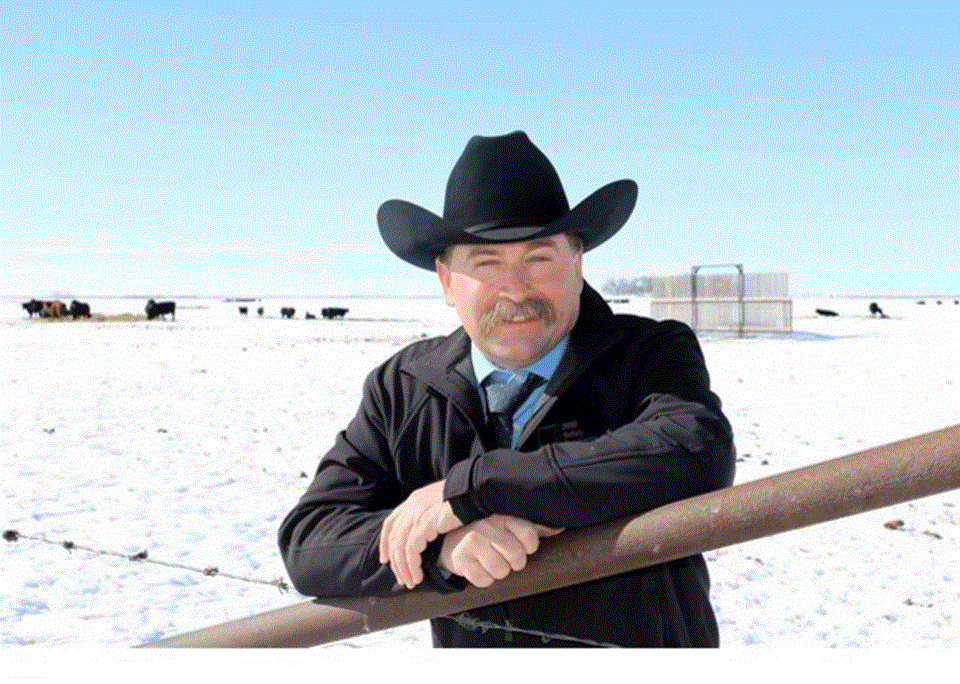ALIDA - In southeast Saskatchewan, where rolling prairies meet hardworking hands, Daryl Harrison stands as a proud representative of community, commitment and service.
Balancing his roles as a family man, farmer and MLA of Cannington, Harrison embodies the values that define his province: integrity, resilience and a deep connection with farmers.
Many people know Harrison as the MLA of Cannington and now the Minister of Agriculture, but his roots go back to farming. He is often seen at local farm auctions and events; one only needs to look for the black or cream-coloured cowboy hat.
For Harrison, family is the foundation of everything he does. He is married to Cheryl, and they have six children and seven grandchildren, ranging in age from one to seven.
Their adult children are all married, except one. They have careers in oil and gas, health care, engineering and agriculture, and the youngest will return to the farm when school is completed.
Born in the Redvers Hospital, Harrison has remained in the southeast for his entire life.
He was raised on a PMU farm that also had quarter horses and Chianina cattle. His mother still owns five quarter horses. When PMU farms began to close down, the Harrisons went further into cattle.
Harrison belonged to 4-H for many years and has worked in the show ring with his cattle.
Chianina cattle originated primarily in the west central part of Italy in the Chianina valley. They are known to be a larger breed with the bulls easily reaching 3,000 pounds. Harrison said this breed of cattle is also longer and has fewer calving issues.
Farming is not just an occupation for him, it is a way of life. It taught him the values of hard work, patience and resilience in the face of challenges.
Fifteen years ago, Harrison and his wife purchased a farm with his mother remaining on the home farm, and together they have a herd of 160 cows. His father died in 2008.
Since Daryl and Cheryl Harrison both have outside jobs from the ranch, his mother looks after things during the day. She will check waterers, hay and any health issues if they arise. She then informs Harrison what the problems may be.
The cattle run on three pastures, where they swath graze, or graze in standing corn and then row hay. They feed enough at one time to last the week.
Calving is done in April, and several bulls run with the herd. They breed with black Angus bulls which Harrison said is a nice cross.
The calves are longer and lanky, which is an easier birth for the cow. These calves grow quickly, are lean and the red meat is free from waste but retains a marbling of fat.
Chianina cows are larger than their Angus counterparts and the cows can reach upwards of 2,500 pounds.
A bull usually can breed 25 cows, so several are needed, and two extra bulls are kept at home, in case one of the others gets injured or is not doing their job.
Harrison usually does not keep from his own heifers to increase his herd. His thoughts are that in buying a cow/calf pair, the cow has already proven to be a good mother and breeder, and they do not have to wait the two years before a calf is born. Heifers can also be more difficult when calving out.
Needling is also a fairly easy task for the farmer. They do not take horses out to the pastures but take their side by side or truck when needling and use a Medi dart. This dart is loaded with the value needed for the animal. Harrison said the animal rarely notices that they had a needle, as it is so quick.
Recently he weaned calves, and a loaded liner headed to Weyburn for them to be sold.
Harrison is proud of what they produce on the farm, and although his life is busy with his roles as MLA and now the minister of Agriculture, he will always remain a farmer at heart.



